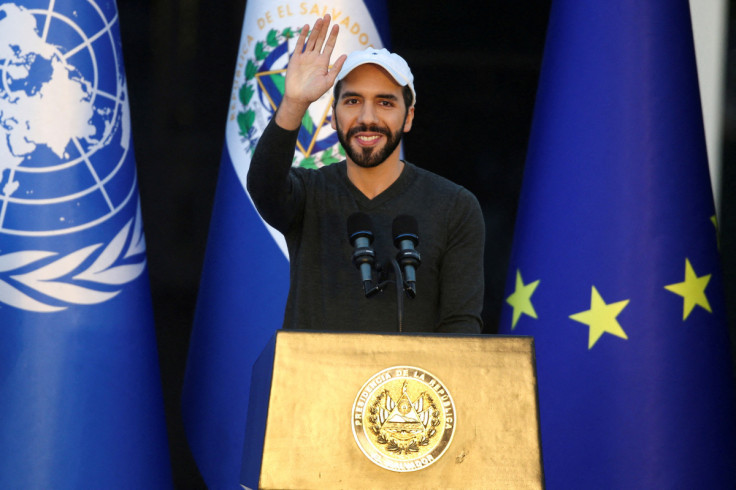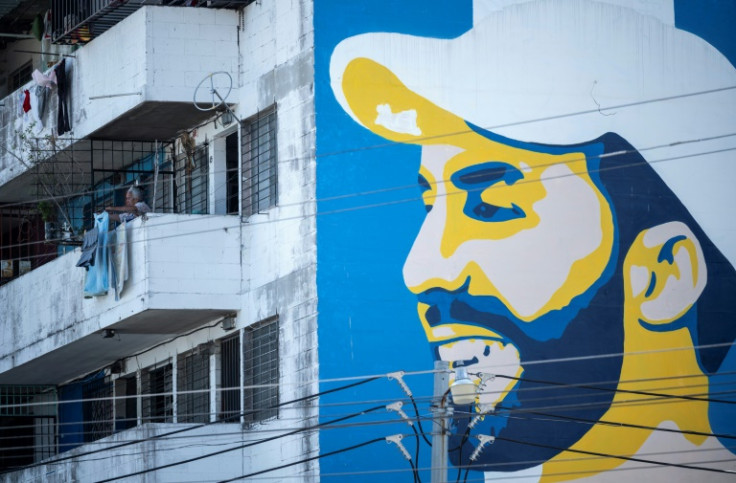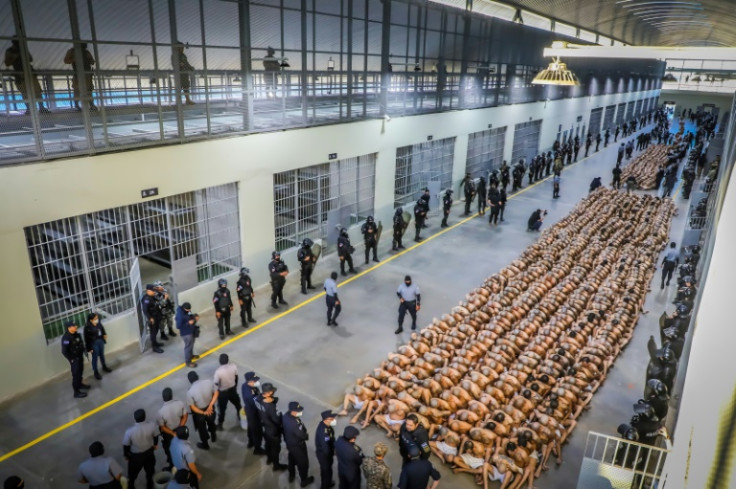
El Salvadoreans go to the polls this Sunday to reelect Nayib Bukele as their president. The statement is not really a reach, as Bukele has an overwhelming lead over the other candidates and his popularity has extended beyond the Central American country's borders, surging as a model for many in the region who propose to impose tougher measures to fight criminal organizations.
Bukele is the most popular president in Latin America, with a recent poll by the Americas Society/Council of the Americas showing him with a 88% approval rate, almost 20 percentage points over Dominican Republican's Luis Abinader (69%) and Mexico's Andrés Manuel López Obrador (68%).
Despite concerns about rights violations, authoritarianism and the economy, 42-year-old Bukele enjoys widespread support for slashing the country's homicide rate and restoring a semblance of normalcy to a population sick of violence.
Bukele has been quick to dismiss criticism from within and abroad, usually taking a confrontational stance. A recent example of this took place this week, when members of the U.S. Congress led by Rep. Ihan Omar submitted a letter to Secretary of State Anthony Blinken, urging the Biden Administration to address "ongoing threats to democracy and human rights" in El Salvador.
The letter described unlawful arrests and detention, harassment of political opponents and restriction on press freedoms as the representatives' main concerns for El Salvador.

"President Bukele has also, during his first term, overseen the militarized harassment of the legislature, a significant erosion of judicial independence, and the de facto criminalization of civil society," the members wrote.
Bukele, on his end, took to X (formerly Twitter)to express his beliefs on the Representatives' request. "We are honored to receive your attacks, just days before our election,"Bukele said sarcastically. "I would be very worried if we had your support. Thank you." "I think the United States should have free and fair elections," Bukele added in a separate message.
The population seems to largely support any overreach given the results they've seen in security matters. In El Salvador, it was unconstitutional for a President to serve consecutive terms. That was until judges appointed by lawmakers in Bukele's party decided to change that law, allowing the incumbent to run for office again.
He has also had the military storm parliament, replaced judges he thought hostile, and overseen the jailing of innocent people, observers say, in his campaign to make the country safer.
Bukele has denounced rare protesters for "vandalism," and called independent media and critics liars and defenders of criminality.
Taking the war to the gangs -- which had extorted protection money and fought bloody street battles that claimed many innocent lives -- Bukele's government introduced a state of emergency in March 2022 that suspended many basic rights.
It remains in place today and has seen authorities round up more than 75,000 suspected gangsters, many held in a brand-new prison -- the largest in the Americas -- that the president had built in a matter of months.

About 7,000 have since been freed for a lack of evidence, but activists say many innocents -- including minors -- remain behind bars in inhumane conditions, even subjected to torture.
Last year, the country recorded its lowest homicide rate in three decades, with 154 killings in total, a rate of 2.4 per 100,000 inhabitants. "We have turned the most insecure country in the world into the safest country in the entire Western Hemisphere," Bukele boasted when his government made the announcement.
Not a fan of criticism, Bukele often resorts to irony online.
He frequently changes his handle on X, formerly Twitter, having self-identified as "dictator of El Salvador" and the "world's coolest dictator" in a sarcastic nod to detractors.
Today he goes by "Philosopher King."
In spite of an apparent love for banter, Bukele has shown himself to be nothing if not ruthless.
When gangs vowed to kill people at random in a response to his state of emergency, Bukele simply threatened to deprive jailed gangsters of food.
Bukele is also headstrong. He took a gamble on bitcoin, swatting away warnings about volatility risks to have it declared official tender and investing an undisclosed amount of taxpayer money in the currency.
However, this has also fueled concern about the country's economy, as nearly 30 percent of Salvadorans lived in poverty in 2022, according to the UN's Economic Commission for Latin America and the Caribbean.
Voting in El Salvador is not compulsory, and turnout in the country of 6.3 million people was just over 50 percent in 2019, when Bukele won in the first round.
None of Bukele's five rival candidates have even five percent of polled support.
With information from AFP
© 2024 Latin Times. All rights reserved. Do not reproduce without permission.





